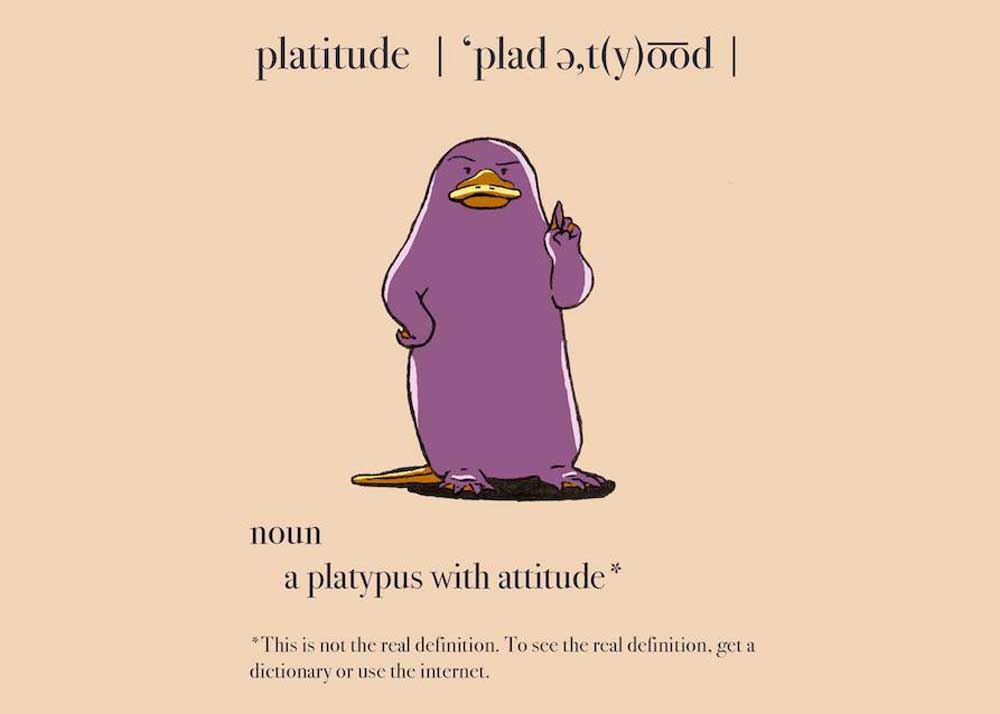
Get Alerts When Andrea Posts Reflections
Platitudes 1:1
There are so many truisms we accept without evaluation. Things our parents taught us, things the minister said, things that were drilled into our heads at Sunday school, over dinner, or in the classroom. Many of these lessons were important teachings on the path to becoming an ethical adult. But not all of them. Some were based on pop (read – unproven) psychology, fear, and the need for social conformance over authentic living.
I encountered one of these banalities yesterday. A woman, at one time my friend, possesses keen intelligence and creativity, and is capable of friendship and tender-heartedness. But like the little girl with the little curl in the middle of her forehead, this woman is also capable of hateful behavior, manipulation, and attack. It has been clear for years, both when she was my friend and afterward -- when the disappointments and risks of being her friend became too great -- that her problem was one of self-loathing. Yesterday, when encountering her for the first time in a great while, a powerful truism demanded its day in court.
Some time in the 1970s pop culture began teaching us that we cannot love others until we love ourselves. One of the largest industries in the world – the self-help publishing and media industry – has been built almost entirely on this premise. The commandments of this movement are clear. Thou shalt learn to love the way you look. Thou shalt learn to love the way you act. Thou shalt learn to love the clothing you pick. Thou shalt learn to love your lovableness.
One commandment that is missing from that lot is thou shalt learn to love the way you think. The love-yourself-first movement includes thou shalt learn to think loving thoughts about yourself, but not thou shalt learn to love the way you think.
Popular culture got it wrong. If we spend our lives trying to learn to love ourselves first, we may never end up loving – categorically loving – anyone. Real loving is the commitment to contribute to another person's spiritual growth. Did I say religious? I almost never say religious, unless I'm dissecting it. I said spiritual. Commitment to contributing to another person's earnest seeking to live a life in right relationship to others is love. Commitment to contributing to another person's ethical or moral state, their state of values and beliefs as opposed to external action (though one certainly follows from the other), is love. Will learning to love ourselves first assist us in achieving the love of others?
No. In fact, the opposite is true. Only when we learn to extend ourselves to others by loving them can we learn to love ourselves. We can achieve an understanding of our own worthiness only when we consistently see the worthiness of others. Each time we deny the worthiness of another human being – which is tantamount to refusing to love them – we deny the worthiness in ourselves. Perhaps we don't recognize it as such, but there is knowledge, deep within each of us, that understands that no one person is more or less worthy of love than another. That which we deny another human is something that must be denied in ourselves. At the end of the day, only our wholeness matters.
For a long time I had felt hard-hearted toward my one-time friend. She abused my friendship and trust. She hurt me. But in a moment of insight, such a simple gift of awareness, I realized that she was locked in a prison of her own making. I ached for her. And in reaching out to her with love instead of a hard heart, I felt better than I had for a long time.
We can only love ourselves when we reach out in love to others.
